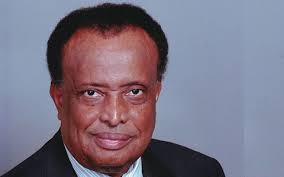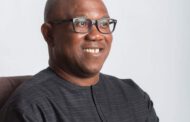Mr. Walter Carrington | credits: celebratekudiratabiola.blogspot.com
A former United States Ambassador to Nigeria, Walter Carrington, has said Nigeria’s continued existence as a country will be determined by the outcome of the 2015 general elections.
The former ambassador stated that if Nigeria could conduct free and fair elections, tackle corruption and bring the ongoing insurgency by Boko Haram to an end, then the country would realise its potential.
In an interview with SUNDAY PUNCH, Carrington said, “Much will depend on next year’s elections and whether their outcome will represent the true will of the Nigerian people.
“If not, then I think the country is in for a period of serious instability. Whichever party wins must be dedicated in deeds, not merely in words, to cure the corruption which has infected much of the body polity. Only then will Nigeria be able to realise its vast potential.
“It is crucial that those on the periphery believe that those in power at the centre have the well-being of all Nigerians at heart, not just their own financial enrichment. A concerned centre can hold the country together. Things need not fall apart.”
Carrington, however, noted that the country’s problems did not start with the current administration led by President Goodluck Jonathan. He said Nigeria’s problem started from the amalgamation in 1914, stressing that Frederick Lugard made a mistake by lumping various ethnic groups to make the country.
Carrington said, “It began a hundred years ago when Lord Lugard, with no regard for the different cultural traditions of the people who inhabited the territories, amalgamated the North and South into one administrative unit to which his wife gave the name, Nigeria.”
The diplomat said, Nigeria had done well to remain as a united country despite going through various conflicts and a civil war.
“What is remarkable, however, is how well this country, made up of over 250 different ethnic groups, speaking around 500 separate languages, has held together for a century despite a bloody civil war and a half dozen successful military coups.
“Nigeria is the largest and one of the very few countries of any size whose population is nearly evenly divided between Christians and Muslims. Yet, in spite of provocations by groups like Boko Haram and local bloody conflicts in Plateau State, the country has done much better in accommodating religious differences than many others,” Carrington said.
He also lamented that corruption had prevented the country from experiencing development in economy, politics and education.
He said, “During turbulent times, many of Nigeria’s best and brightest left for foreign shores where they have excelled and have been admired as among the most accomplished of émigrés. Yet their opportunities to replicate their successes back home have been severely constricted.
“They, along with highly educated Nigerians who remained at home, have found their chances to succeed in business or politics greatly compromised by their reluctance to go along with a corrupt system. Merit needs to be seen to be more rewarded than it is today. All capable hands must feel welcome on deck.”














